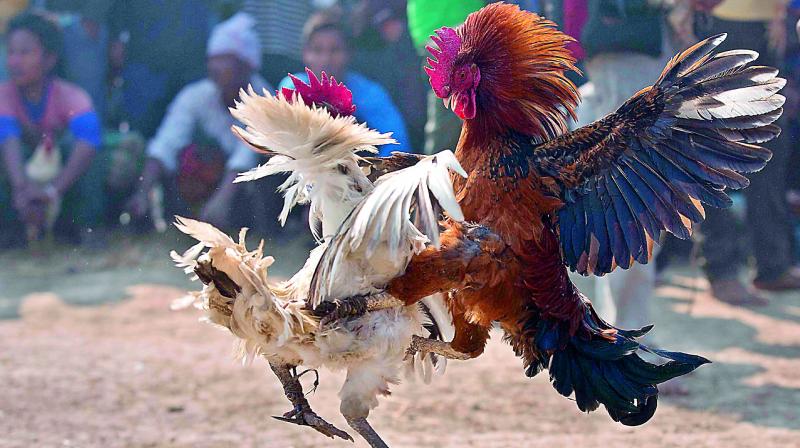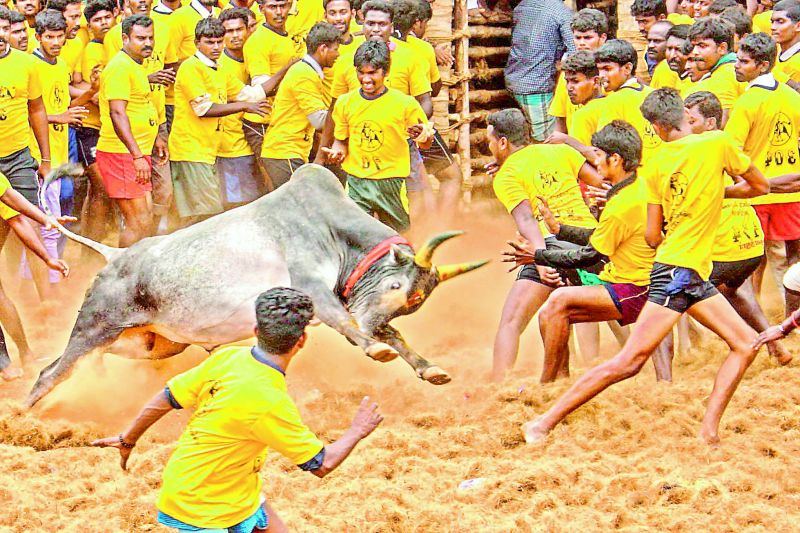Culture vs court: What reigns supreme?
It's not just the Sabarimala row that has stoked a debate on cultural practices versus court rulings in the world's largest democracy.

The recent entry of two women into Sabarimala temple — Kanakadurga and Bindu has only added fuel to the ongoing protests by pro-Hindu groups and activists against allowing women to enter the shrine.
While failure to implement the Supreme Court ruling (allowing women of all ages to enter) is deemed Contempt of Court, recent times have seen a slew of instances where the prevailing cultural and religious practices have confronted the court ruling. From Sabarimala, to Jallikattu and cockfights to a ban of crackers during festivals (read Diwali), blatant violations of Supreme Court orders by various sections of society have sparked a debate. Is the spread of the virus of ‘contempt of court’ setting a dangerous precedent for the future?

Gopalakrishna Tamada, former justice, High Court of Andhra Pradesh, calls this development, ‘unfortunate’. “The concerned authorities should be held responsible for this violation of law. Either the one who has filed the petition should re-file the petition, or the Courts should take up the case as suo moto and initiate action. Unfortunately neither of the two is happening,” he laments.
Command vs Tradition
While the court also had intervened when it came to practices like Jallikattu, cock fights and fireworks during recent Diwali, the verdict only looked like ‘mocking enforcement’ with the enforcers pleading helplessness against the general will. During Sankranti festival, cockfights and Jallikattu continue. While festive practices are carried with no intent to cause harm, can a command overrule cultural traditions? And to what extent should the law interfere in cultural issues? These are the questions that are stoking public debate today. Sociologist Shiv Vishwanath thinks that the courts should give time to implement the ruling. “The court should always give enough time to implement the decision before the issue turns out to be a complex one. When society is divided, it takes time to find a consensus. So cultural issues, if not dealt with carefully, will eventually turn into a political one,” he asserts.
Empowering people — The only way forward
In the midst of such violent protests, how can things be resolved peacefully? Chandra Kumar, former justice, High Court of Andhra Pradesh, believes that empowering people is the only way forward “Widow marriages were banned long back, but it took several years to bring a change in the mindset of society to accept it,” he points out, adding, “Some of Supreme Court’s decisions have been ahead of times. Unfortunately the society hasn’t grown up to such a level to embrace such a cultural transformation overnight. I think courts should be sensitive to culture. But when things are chaotic like this, the people should be empowered and educated on the emerging cultural changes to put things to rest,” says Chandra Kumar.
Women’s equality a Constitutional right
Kavita Krishnan, Secretary, All India Progressive Women’s Association, says that the Sabarimala issue is not about religious sentiment, but about the constitutional rights of human beings. “The Sabarimala issue is like protesting against equality. The very thought that women would break the sanctity of God is in itself fundamentally wrong and offensive to women. It is against the constitutional rights of the women,” she explains, adding, “So it is more of a debate between Constitution vs the flawed court ruling by the Kerala High court which in 1991 imposed a ban on women entering the temple.”

